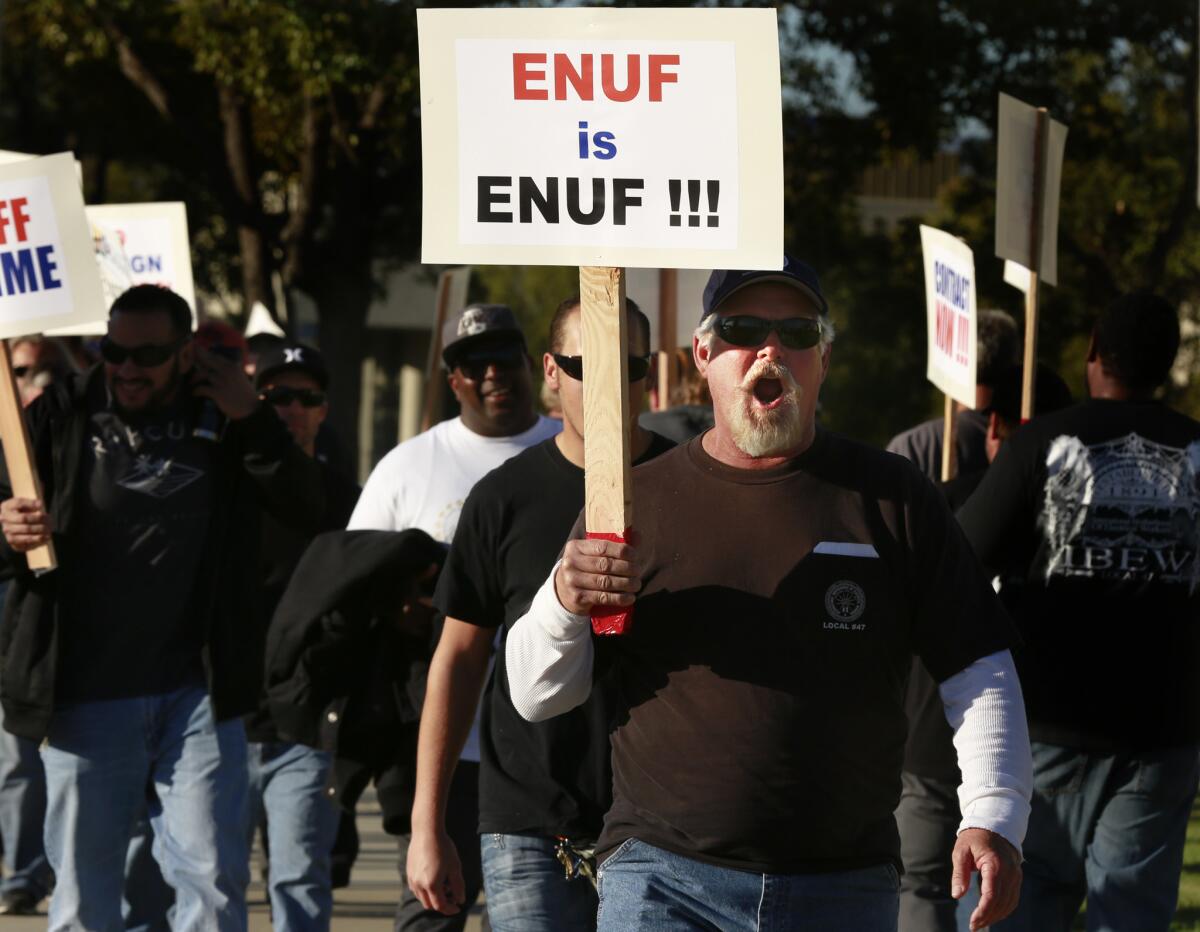Editorial: End H-1B visa program’s abuse

- Share via
Information technology workers at Southern California Edison have found themselves in the unhappy position of training their own replacements, thanks to a plan by the utility to outsource their jobs to two India-based staffing companies.
Adding insult to injury, some of the new workers are in the United States under what are known as H-1B visas — a category of visa that was designed to help American businesses fill specialized positions, not to displace American workers. And worse yet, Southern California Edison’s action appears not to be unusual: It is part of a years-long trend among companies of misusing H-1B visas to undercut wages and offshore high-paying American jobs.
------------
FOR THE RECORD:
This editorial says Unisys was among the top two companies receiving H-1B visas for workers in 2013. Infosys is the company that should have been named. Also, the Government Accountability Office is identified under its former name, the General Accounting Office.
------------
H-1B visas were introduced in 1990, and over the years the annual cap on them has ranged up to 195,000; it now stands at 65,000 (plus 20,000 for people with master’s degrees). President Obama, some members of Congress and the tech industry want the cap raised. Under law, visa users must have specialized training or a bachelor’s degree in the subject for which they are being hired; they must be offered the prevailing wage for that work, and they can take only jobs for which the employers could not find a qualified American worker.
But that’s not how the system has been working. Reports from the Center for Investigative Reporting, the New England Public Policy Center for the Federal Reserve Bank of Boston, and the Economic Policy Institute have spotlighted fraud and abuse problems with the H1-B program. A 2011 General Accounting Office report concluded that the departments of Labor and Homeland Security asserted insufficient oversight of the visa workers’ qualifications and wages, in part because of problems with the immigration laws themselves, including a lack of enforcement provisions. The Obama administration responded with some administrative fixes, but Congress has yet to address fundamental problems with the law.
Critics of the program contend that many companies use the visas to displace American workers and drive down salaries, both of which are expressly prohibited by law. Six of the top 10 companies receiving H-1B visas for workers in 2013 are based in India. The top two are Unisys and Tata Consultancy Services, the firms Southern California Edison hired to outsource the work of their 500 IT employees, 400 of whom are being laid off and 100 of whom are leaving voluntarily. About 70% of the work will shift overseas; about 20% of the jobs that remain in the U.S. are held by foreigners with H-1B visas, Edison said.
In concept, the H-1B program is a good idea. It provides a short-term mechanism for companies to bring in workers from overseas when there’s a shortage of job candidates with specific expertise. In practice, though, the system is a broken. Congress needs to fix it.
Follow the Opinion section on Twitter @latimesopinion and Facebook
More to Read
A cure for the common opinion
Get thought-provoking perspectives with our weekly newsletter.
You may occasionally receive promotional content from the Los Angeles Times.









